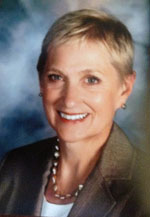Pastors Message – June, 2017

Dear Friends,
We have reached a point in our Interim period in which we are called to envision the future of this church. We have touched on it before, but now we really have to settle in to the task. We do it not just because it is required by the Presbytery, but because we need to do it for ourselves. Actually this process of envisioning the future should be done by a church every five years. Even when no change of pastor is involved change is inevitable and unavoidable. If the church hopes to stay relevant, and engaged with the world, as it is called to be, it must be awake to the world’s needs and its own calling and potential.
Lately I have been pondering the word imagination and have come to see how valuable it is, more important even than reality. I think that Albert Einstein was correct in his observation that “reality is merely an illusion, albeit a very persistent one“, and that “imagination is everything“. It is the preview for life’s coming attractions.”
Why is imagination so essential? For one thing imagination ignites passion. For individuals as well as for churches there is a connection between passion and purpose. I first realized this when my passion for poetry led to my years of leading poetry programs. Passion and purpose superseded survival and responsibility. And isn’t it possible to be both passionate and responsible?
And it is essential because imagination and thoughts create our future. I quote from a piece in the Huffington Post, “When we stay immersed in what is directly in front of us at all times (i.e. our current reality), we continually create the same challenges, problems, and experiences over and over again. But, when we venture into our imagination to focus on the reality that we want to experience, the energy is set in motion and magnificent change can occur.”
And imagination stimulates creativity and innovation. Some of the most influential and innovative creations have come from the simple act of imagining something more beneficial, more accessible, more expansive, and more lovely. Someone had to be able to imagine street lights, the automobile, vaccines, and reaching to the stars. The list is endless.
And imagining can be magical. Just watch a child at play. I am reminded of the poem by Billy Collings, On Turning Ten. “At four I was an Arabian wizard. I could make myself invisible by drinking a glass of milk a certain way.” How amazing would our world be if we all experienced that same joy and wonder on a day-to-day basis?
And finally, sometimes “the world is too much with us;” to quote Wordsworth, another poet. Again from the Huffington article, “By falling into the trap of ‘what is’ and believing that this is just the way the world works, we become a victim and relinquish our true creative power. Our imagination and thoughts create our future. It’s long been said that ‘thoughts become things’ and our imaginative muscle is the very thing that helps make that possible. When we stay immersed in what is directly in front of us at all times (i.e. our current reality), we continually create the same challenges, problems, and experiences over and over again. But, when we venture into our imagination to focus on the reality that we want to experience, the energy is set in motion and magnificent change can occur. Choosing to use our imaginative muscle as a means of creation provides hope. And where there is hope there is ultimately an opportunity for transformation and change.”
I invite us all to activate and exercise our imaginations, to dare to dream. What good things might the future hold for First Presbyterian Church Big Flats and how can we make them a reality? What do we want to create in the life of the church and in our own lives? The possibilities are endless. We have the power to create so much more and it is up to us to use our imaginations to do so, and indeed we have our Creator God cheering us on.
Share your imaginings in person, by phone, note or email. Do not keep them to yourselves. And let us be united by our hope and dreams for the future, that they become a new reality.
Blessings,
Pastor Beth
Serf-Walls, Lamisha,( life coach), Five Reasons Imagination is More Important Than Reality, Huffington Post Blog, 11/4/2014




